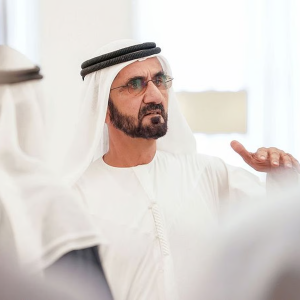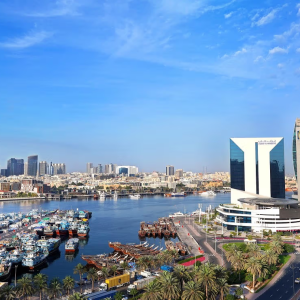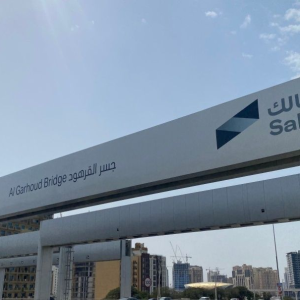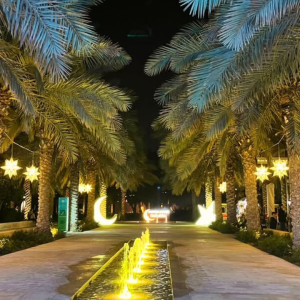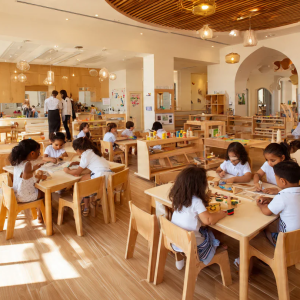The UAE President, Sheikh Mohamed bin Zayed Al Nahyan, has reinforced the nation’s unwavering support for Qatar during a high-level meeting with Qatari Emir Sheikh Tamim bin Hamad Al Thani. This diplomatic visit marks a significant moment in Gulf relations, emphasizing the UAE’s commitment to unity, regional stability, and cooperation with its neighbors.
The meeting comes at a critical time in regional geopolitics. Rising tensions in the Middle East have highlighted the importance of strong alliances among Gulf states. The UAE-Qatar solidarity meeting demonstrates not only diplomatic support but also a shared vision for a secure, prosperous, and united Gulf region.
A Gesture of Unity in Challenging Times
President Sheikh Mohamed’s visit to Doha represents a profound show of solidarity. It underscores the UAE’s stance that regional challenges are best addressed through cooperation rather than conflict. The timing of the visit highlights the UAE’s commitment to standing alongside Qatar in moments of external pressure, signaling that the two nations share a common goal of defending sovereignty, security, and regional peace.

During the meeting, Sheikh Mohamed conveyed the UAE’s full support for Qatar’s efforts to safeguard its national interests. Both leaders emphasized the importance of collective responsibility among Gulf nations to protect territorial integrity and maintain stability in a volatile region.
Historical Context of UAE-Qatar Relations
Understanding the significance of this meeting requires looking at the history of UAE-Qatar relations. Over the past few decades, the two countries have shared economic, cultural, and political ties. Both nations are members of the Gulf Cooperation Council (GCC), which was established to foster unity and collaboration among Gulf states.

Despite periods of tension in the past, particularly during diplomatic disagreements in the late 2010s, the UAE and Qatar have worked tirelessly to rebuild trust and strengthen their relationship. Initiatives in trade, education, energy, and infrastructure have been central to this reconciliation, illustrating the resilience of bilateral relations.
The UAE-Qatar solidarity meeting further cements this trajectory of cooperation, showing that past differences have been set aside in favor of long-term partnership and regional unity.
Strengthening Bilateral Relations
The discussions between President Sheikh Mohamed and Emir Sheikh Tamim went beyond immediate geopolitical concerns. Both leaders focused on enhancing bilateral ties across multiple areas, including diplomacy, security, economy, and social engagement.
Economic collaboration was a major point of discussion. The UAE and Qatar share numerous opportunities in sectors such as renewable energy, technology, finance, tourism, and infrastructure development. By aligning their economic strategies, both nations aim to create sustainable growth, strengthen trade partnerships, and provide new opportunities for their citizens.
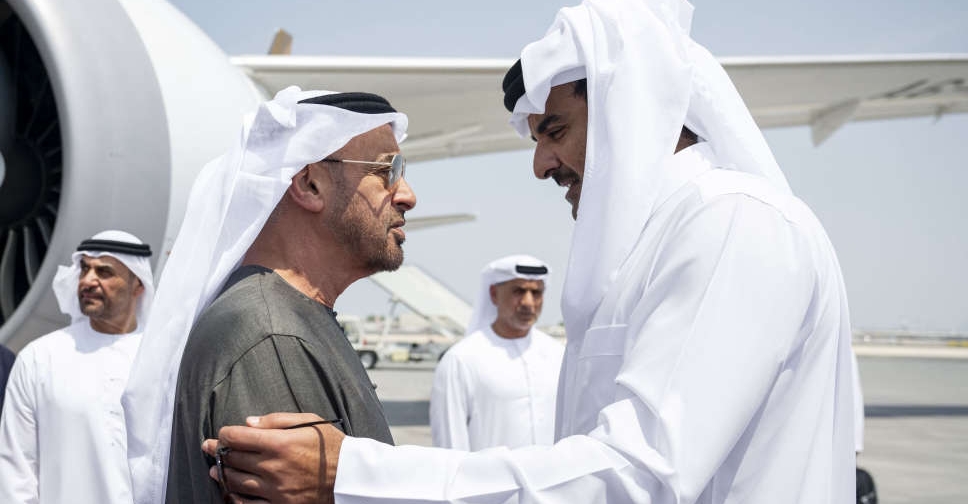
Commitment to Regional Peace and Security
Security and stability were central themes of the meeting. President Sheikh Mohamed emphasized the UAE’s commitment to regional peace and its proactive role in addressing potential threats. The leaders discussed strategies for maintaining stability, preventing conflicts, and fostering cooperation among Gulf nations.
This solidarity sends a powerful message to the region: Gulf nations will work together to maintain peace and defend their collective interests. The UAE-Qatar relationship now serves as a model for regional collaboration, demonstrating how diplomacy and dialogue can effectively address geopolitical challenges.
Regional Alliances and Cooperation
The UAE-Qatar solidarity meeting also reflects the broader framework of Gulf alliances. Both nations have recognized the need for strategic partnerships that extend beyond bilateral ties. Cooperation with other GCC members, as well as strong engagement with international partners, enhances their ability to respond to regional threats and pursue economic development.
Joint initiatives in areas such as energy security, counterterrorism, and humanitarian aid have been discussed as part of ongoing collaboration. These efforts highlight the UAE and Qatar’s shared commitment to fostering a safer, more prosperous Gulf region.
Future Collaborative Projects
The meeting also paved the way for several future projects aimed at strengthening UAE-Qatar ties. Key areas of collaboration include:
- Renewable Energy: Joint investment in solar and wind energy projects to support sustainability goals.
- Education and Research: Exchange programs and research partnerships between universities and institutions in both countries.
- Healthcare Initiatives: Collaboration on medical research, public health programs, and emergency response strategies.
- Cultural Exchange: Expansion of cultural programs, sports events, and artistic collaborations to foster mutual understanding and stronger social bonds.
These projects reflect a comprehensive approach to bilateral cooperation, demonstrating that the UAE-Qatar relationship encompasses more than politics—it is a partnership for sustainable growth and societal development.
Economic Growth and Investment Opportunities
Economic integration between the UAE and Qatar has been steadily increasing. Both countries have recognized the potential of leveraging their resources, infrastructure, and expertise to boost regional trade and investment.
During the meeting, discussions highlighted ways to streamline trade agreements, enhance investment in key sectors, and encourage joint ventures. These efforts are expected to generate jobs, improve technology transfer, and strengthen economic resilience in both nations.
The UAE-Qatar economic partnership serves as a foundation for broader regional development, benefiting not only the two nations but also the Gulf region as a whole.
Cultural and Social Engagement
The solidarity between the UAE and Qatar extends to cultural and social domains. Both nations share a commitment to education, heritage preservation, sports, and community development. Cultural exchange programs and collaborative initiatives are designed to foster mutual understanding and a sense of shared identity among citizens.
During the meeting, both leaders emphasized the importance of maintaining these cultural links. By investing in education, youth programs, and sports diplomacy, the UAE and Qatar aim to strengthen people-to-people connections, which form the backbone of a resilient and cooperative region.

A Symbol of Regional Leadership
President Sheikh Mohamed’s visit to Doha symbolizes the UAE’s role as a regional leader committed to dialogue, partnership, and conflict resolution. The meeting reflects the UAE’s proactive approach to international relations and its dedication to defending regional allies.
This event also highlights the UAE’s strategic vision for the Gulf, which emphasizes collaboration over confrontation. By supporting Qatar, the UAE demonstrates its commitment to a unified Gulf front that prioritizes stability, prosperity, and security.
Implications for the Gulf Region
The UAE-Qatar solidarity meeting sends a strong message to the region and the international community. It reinforces the principle that unity among Gulf states is essential for addressing geopolitical challenges and promoting peace.
The meeting may also encourage other Gulf nations to strengthen their diplomatic engagement and regional cooperation. This spirit of collaboration has the potential to reduce tensions, enhance economic growth, and create a more resilient Gulf region capable of navigating complex international dynamics.
Looking Ahead
The UAE-Qatar solidarity meeting marks a turning point in Gulf diplomacy. It demonstrates that the two nations are committed to standing together, supporting each other’s sovereignty, and fostering long-term collaboration.
Future initiatives are expected to focus on joint economic projects, cultural exchanges, educational programs, and regional security coordination. This ongoing partnership not only strengthens bilateral ties but also contributes to the broader stability and prosperity of the Gulf region.
Conclusion
The recent meeting between UAE President Sheikh Mohamed bin Zayed Al Nahyan and Qatari Emir Sheikh Tamim bin Hamad Al Thani highlights the enduring strength of UAE-Qatar relations. Through this high-profile engagement, both nations reaffirmed their commitment to regional solidarity, economic collaboration, and mutual support.
The UAE-Qatar solidarity meeting serves as a model for effective diplomacy, demonstrating that challenges can be addressed through cooperation and dialogue. By working together, these two Gulf nations are creating a pathway toward a more united, stable, and prosperous region.
This meeting is more than a symbolic gesture—it is a strategic step toward reinforcing trust, strengthening alliances, and ensuring that the Gulf remains a region of stability, peace, and shared growth.
Do follow UAE Stories on Instagram
Read Next – Digital Remittance Apps in UAE and Saudi Arabia Gain Momentum




